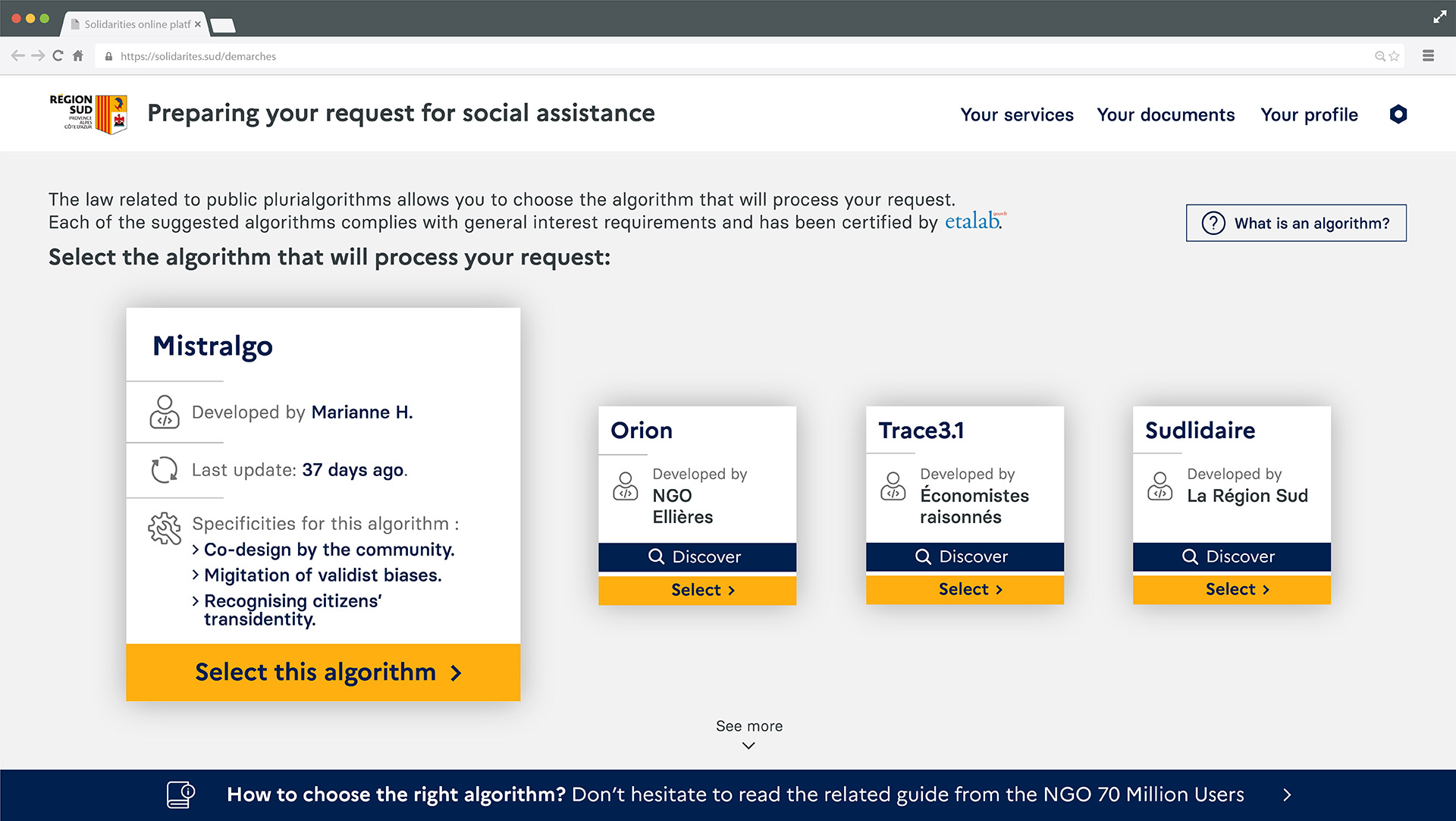The 2030s see the advent of a French society more profoundly transformed than it seems. The personalisation of experiences, the rise of communities and the search for social justice are at the heart of public innovation.
In this specific context appears the public plurialgorithmics law, supported by an empathetic State, rather than strategic. Plurialgorithmics is a radical shift: for the same public action or decision, there is no more one, but a multitude of algorithms adapted to the different publics that may be affected or impacted.
Each and every one can choose their algorithmic regime, according to their community, their profile, even discrimination they may consider suffering from. Each algorithm behaves differently depending on the user’s profile and adapts its calculation mode according to matters of gender, ethnic group, sexual orientation, citizenship status or even handicap. If the modes of calculation and of decision are different from one person to the other, public services, however, stay available to everyone.
The stake is now to choose the ‘good’ system: a public algorithm is now presented under all its variations so that the user can choose the most appropriate one in regard to their personal situation. As a mirroring effect, the algorithm – now plural – makes visible the necessity to adapt and deconstruct some public measures in front of the inherent difficulties met by the communities using them.
It is important to note that many algorithms are co-designed with members of the communities in which they will be used. They are improved afterwards, thanks to data coming from the usage, the user profiles and the context of use that the community accepts to provide.
Questions related to the opportuneness of putting in place an algorithm have profoundly evolved: we don’t ponder about when to implement an algorithm for a public service, but about when to develop hundreds of different algorithms for the same public action. It goes without saying that substantial means have been used to answer this challenge.
With no surprise, the plurialgorithmics shift creates controversies: its detractors see in it the end of equity and universalism proper to France. According to the same criticisms, the rupture is acknowledged with the republican dogma of the nation’s indivisibility.
In response, the plurialgorithmics advocates highlight that this universalism offered through algorithms is a carrier of oppression and discrimination because it is by design aligned with the interests of the powerful ones.
Over the years, this variable geometry gradually instils until it gets called for by public administrations and services themselves.
Indeed, civil servants are bothered with using ‘monolithic’ algorithms that disregard disparities between territories.
— The selection screen for an algorithm to obtain social welfare
